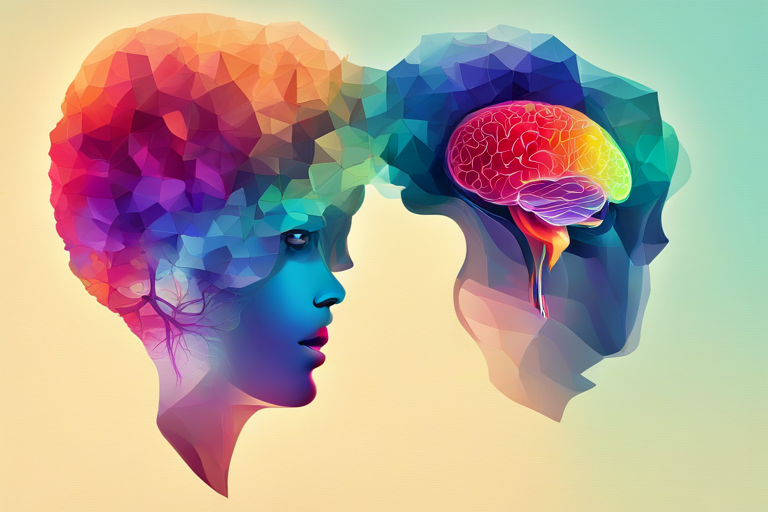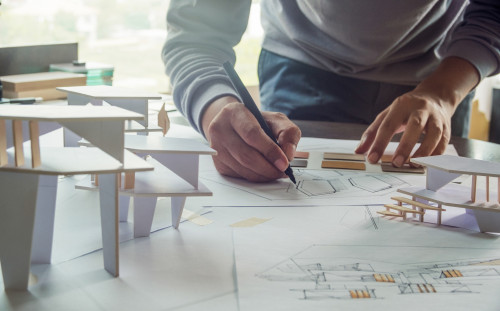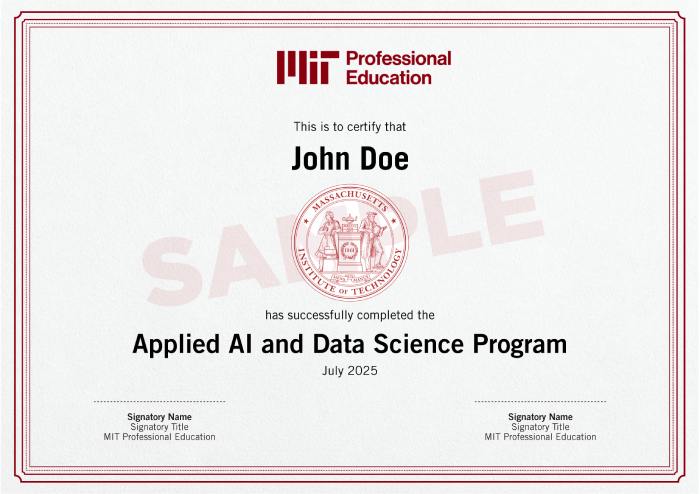
The Neuroscience of Calm: How Meditation Rewires Your Brain for Enhanced Mental Performance
The Neuroscience of Calm: How Meditation Rewires Your Brain for Enhanced Mental Performance
In our hyper-connected world, the human mind is constantly under siege. A relentless barrage of notifications, deadlines, and information overload creates a state of perpetual cognitive static, leaving many feeling scattered, stressed, and mentally fatigued. While we often look to external solutions for a competitive edge, one of the most powerful tools for enhancing our mental abilities lies within. Meditation, particularly mindfulness meditation, is evolving from an ancient spiritual practice into a mainstream, science-backed method for cognitive enhancement. It’s more than just a technique for relaxation; it’s a systematic training regimen for the brain.
This article delves into the technical underpinnings of how meditation reshapes our neural architecture to improve focus, memory, creativity, and emotional regulation. We will explore the specific brain regions impacted by consistent practice, break down the cognitive benefits, and provide actionable insights for integrating this transformative habit into your daily life. Whether you’re seeking better Work-Life Balance, aiming for peak performance in your career, or simply wish to cultivate a clearer, more resilient mind, understanding the neuroscience behind meditation provides a compelling roadmap for profound Self-Improvement and lasting Mental Health.
The Neurological Foundations of Meditation: More Than Just Relaxation
For centuries, practitioners have described the profound sense of peace and clarity that comes from meditation. Today, modern neuroscience is validating these subjective experiences with objective data, using technologies like fMRI and EEG to map the brain’s transformation. The practice is a direct application of neuroplasticity—the brain’s remarkable ability to reorganize itself by forming new neural connections. Think of it as a targeted workout for your mind, strengthening key areas responsible for higher-order thinking and emotional balance.
The Brain on Meditation: Key Regions and Their Transformation
Consistent meditation practice induces measurable changes in both the structure and function of the brain. Here are some of the key areas that are rewired for optimal performance:
- The Prefrontal Cortex (PFC): Often called the “CEO of the brain,” the PFC is responsible for executive functions like planning, decision-making, and moderating social behavior. Studies show that meditation increases gray matter density in this region. This structural change correlates with enhanced attention, concentration, and self-awareness, providing a neurological basis for improved Productivity Tips and more effective Financial Planning.
- The Amygdala: This almond-shaped set of neurons is the brain’s alarm system, responsible for the fight-or-flight response and processing emotions like fear and anxiety. Meditation has been shown to reduce the gray matter density and activity of the amygdala. A less reactive amygdala means a calmer, more measured response to stressors, which is the cornerstone of effective Stress Management and healthier Relationships.
- The Hippocampus: Critical for learning and memory formation, the hippocampus also plays a role in emotional regulation. Research indicates that mindfulness meditation can increase cortical thickness in the hippocampus, which may explain the reported improvements in memory recall and the ability to learn new skills—a vital asset in today’s fast-paced world of Career Advice.
- The Default Mode Network (DMN): This network is active when our minds wander—ruminating about the past or worrying about the future. While essential for creativity and self-reflection, an overactive DMN is linked to anxiety and depression. Meditation helps regulate the DMN, training the brain to stay anchored in the present moment, reducing unhelpful mental chatter and freeing up cognitive resources.
Neuroplasticity in Action: Rewiring for Resilience
Every time you sit down to meditate and gently guide your wandering attention back to your breath, you are strengthening the neural circuits of focus and weakening the circuits of mind-wandering. This repetitive action forges new, more efficient pathways in the brain. Over time, this “rewiring” makes emotional regulation and sustained attention less of a conscious effort and more of an automatic state. This enhanced resilience is a cornerstone of Holistic Health and is fundamental to Aging Well, providing a mental buffer against life’s inevitable challenges.
A Technical Breakdown of Cognitive Enhancements

The structural changes in the brain translate directly into tangible improvements in our cognitive abilities. By training the mind to be more stable and clear, meditation unlocks latent potential in several key areas of mental performance, impacting everything from our work to our Hobbies.
Sharpening Attention and Concentration
Attention is the currency of productivity. Meditation cultivates two primary forms of attention. The first is focused attention, the ability to concentrate on a single object (like the breath) for an extended period. The second is open-monitoring, a state of receptive awareness to any and all experiences without judgment. This dual training significantly enhances our attentional control. In practical terms, this means a greater ability to stay on task despite distractions, a critical skill for effective Remote Work, and the capacity to absorb information more deeply, whether you’re Reading a dense report or learning a new skill. This sharpened focus can even make daily chores, from Meal Planning to tackling DIY Projects, feel more engaging and less overwhelming.
Boosting Working Memory and Learning
Working memory is the brain’s temporary “scratchpad” where we hold and manipulate information to perform complex tasks. Its capacity is limited, and it’s easily disrupted by stress and mental clutter. By regulating the Default Mode Network and reducing mind-wandering, meditation frees up valuable cognitive bandwidth. With fewer mental resources being consumed by stray thoughts, more are available for the task at hand. This directly enhances working memory capacity.
Real-World Scenario: A software developer practicing mindfulness finds she can hold more complex code structures in her mind, leading to fewer errors and more elegant solutions. Similarly, a student preparing for exams can better retain and connect concepts, moving beyond rote memorization to true understanding.
Fostering Creativity and Divergent Thinking
While focused attention is crucial for execution, creativity often arises from a different mental state. Open-monitoring meditation encourages divergent thinking—the ability to generate novel ideas by exploring many possible solutions. By fostering a non-judgmental awareness, this practice allows the brain to form new, unexpected connections between disparate concepts. This mental flexibility is invaluable for problem-solving in any field, whether you’re brainstorming a marketing campaign, finding an innovative approach to Sustainable Living, or coming up with a unique theme for your Home Decor.
From Cushion to Career: Integrating Mindfulness into Your Lifestyle
Understanding the science is compelling, but the real benefits of meditation come from consistent practice. Integrating mindfulness into a busy schedule doesn’t require a monastic retreat; it’s about building a sustainable habit that complements your existing Lifestyle News and routines. This practice can be a form of Home Improvement for your mind, creating a more peaceful and organized inner environment.
Best Practices for a Sustainable Meditation Routine

- Start Small: Begin with just 5-10 minutes a day. Consistency is far more important than duration, especially in the beginning.
- Create a Dedicated Space: Designate a quiet corner in your home for your practice. Good Interior Design can help, even if it’s just a comfortable cushion and a clutter-free surface. This creates a psychological cue for your brain to settle down.
- Use Guidance: Leverage technology. Numerous apps and online resources offer guided meditations, which are excellent for beginners who need structure.
- Practice Non-Judgment: The goal is not to stop thinking. It’s to notice when you are thinking and gently return your focus. Treat each distraction as an opportunity to practice, not as a failure.
- Connect with Your Body: Incorporate gentle movement like that found in Yoga News to release physical tension before you sit, which can lead to a more settled mind.
Common Pitfalls and How to Overcome Them
- “I can’t stop thinking!”: This is the most common misconception. The mind’s job is to think. Your job is to observe the thinking without getting carried away. Acknowledge the thought and guide your attention back to your anchor (e.g., the breath).
- Falling Asleep: If you find yourself dozing off, try sitting in a more upright posture, meditating earlier in the day, or even trying a walking meditation. Improving your overall Sleep Health will also make a significant difference.
- Boredom and Restlessness: These feelings are part of the process. Observe them with curiosity instead of resisting them. This is the practice of building patience and resilience.
Mindfulness Beyond Formal Practice
The ultimate goal is to bring the awareness cultivated on the cushion into everyday life. You can practice mindfulness anywhere:
• Mindful Eating: Pay full attention to the flavors and textures of your food, which can enhance your enjoyment of Healthy Recipes and improve digestion.
• Mindful Chores: Bring your full attention to the sensations of washing dishes or the methodical process of Natural Cleaning. This transforms mundane tasks into opportunities for mental calm.
• Mindful Commuting: Instead of zoning out, pay attention to the sights and sounds around you, turning a stressful part of the day into a moment of grounding.
The Ripple Effect: Beyond Individual Cognitive Gains
The benefits of meditation extend far beyond personal productivity, creating a positive ripple effect that touches every aspect of life, from our personal finances to our community connections. It is a foundational practice for a more conscious and fulfilling existence.
Enhancing Emotional Intelligence and Relationships
By quieting the reactive amygdala and strengthening the thoughtful prefrontal cortex, meditation cultivates emotional intelligence. This heightened self-awareness allows you to recognize your emotional triggers before they take over, leading to more constructive communication in your Family Life and professional collaborations. It also fosters empathy, as a quieter mind is better able to listen and connect with others. This is one of the most powerful Parenting Tips: a regulated parent helps raise a regulated child.
A Foundation for Sustainable Living and Financial Prudence
Mindfulness is the practice of paying attention on purpose. When applied to our consumer habits, it can be revolutionary. By becoming more aware of the internal triggers that lead to impulsive spending, we can make more conscious choices that align with our long-term goals, directly supporting better Budget Tips and Financial Planning. This same awareness can extend to our environmental impact. A mindful person is more likely to consider the consequences of their actions, naturally leading to an interest in Sustainable Fashion, Zero Waste principles, and other forms of Eco-Friendly Living. This heightened consciousness fosters a sense of responsibility and can inspire greater involvement in Volunteering and activities that have a positive Social Impact.
Conclusion: Your Brain’s Untapped Potential
Meditation is not a panacea, but it is a potent, evidence-based tool for reclaiming control over your mental landscape. The science is clear: through the mechanism of neuroplasticity, this ancient practice systematically trains the brain for higher performance. It strengthens our capacity for focus, enhances memory, unlocks creativity, and builds emotional resilience. By rewiring the very circuits that govern our thoughts and reactions, meditation moves from a simple relaxation technique to a fundamental pillar of Personal Development and Health & Wellness.
The journey begins with a single breath. By committing to a small, consistent practice, you are not just finding a moment of peace in a chaotic day; you are actively investing in your long-term cognitive and emotional well-being. You are unlocking your brain’s inherent potential to be clearer, calmer, and more capable in every facet of your life.
You may also like
Archives
- February 2026
- January 2026
- December 2025
- November 2025
- October 2025
- September 2025
- August 2025
- July 2025
- June 2025
- May 2025
- April 2025
- March 2025
- January 2024
- October 2023
- September 2023
- August 2023
- July 2023
- June 2023
- May 2023
- April 2023
- March 2023
- February 2023
- January 2023
- December 2022
- November 2022
- October 2022
- September 2022
- August 2022
- June 2022
- May 2022
- April 2022
- March 2022
- January 2022
- December 2021
- November 2021
- October 2021
- August 2021
- November 2020
- July 2020
- May 2020
- April 2020
- March 2020
- August 2018
- July 2018
- June 2018
- April 2018
- March 2018
Categories
- Aftercare Procedures
- Age Groups
- AI/ML
- Alternative Medicine
- Ambient Computing
- Animal Health
- Animal Husbandry
- Animals
- Anti-Aging
- Architectural Design
- Art And Technology
- Auditory Science
- Augmented Reality
- Automation
- Babies
- Baby
- Beauty & Skincare
- Beauty Industry
- Biohacking
- Biomechanics
- Book Reviews
- Breastfeeding
- Budgeting
- Budgeting Strategies
- Business
- Cardiovascular Health
- Career Advice
- Career Development
- Career Growth
- Cats
- Chess
- Chronobeauty
- Circular Economy
- Civic Technology
- Cleaning Tips
- Cloud Computing
- Cognitive Health
- Cognitive Performance
- Cognitive Science
- Community
- Community Building
- Community Engagement
- Community Living
- Computer Vision
- Consumer Guides
- Consumer Trends
- Container Gardening
- Content Analysis
- Content Non-Technical
- Content Strategy
- Cooking Techniques
- Cosmetic Chemistry
- Cultural Events
- Cycling
- Data Analysis
- Data Engineering
- Data Science
- Database
- Design Psychology
- Design Trends
- Developer Productivity
- Diet
- Diet
- Diet And Nutrition
- Digital Identity
- Digital Media
- Digital Wellbeing
- DIY
- DIY Projects
- Dogs
- Engineering Culture
- Entertainment News
- Environmental Impact
- Environmental Science
- Equity Compensation
- Ethical AI
- Exercise
- Exercise Science
- Exercise Technique
- Exotic Pets
- Fall Gardening
- Family
- Family Health
- Family Life
- Fashion Business
- Fashion Industry
- Fashion News
- Fashion Tech
- Financial Analysis
- Financial Optimization
- Financial Planning
- Flooring Maintenance
- Food
- Food Psychology
- Food Safety
- Food Science
- Food Tech
- Functional Fitness
- Functional Training
- Future Of Work
- Garden Care
- Garden Maintenance
- Gardening Tips
- Geospatial Data
- Gig Economy
- Greece
- Greek
- Greek Food
- Green Technology
- Gymnastics
- Hardware Engineering
- Health
- Health And Wellness
- Health Informatics
- Health Science
- Health Tech
- Health Technology
- Healthcare
- Healthcare Management
- Healthy Eating
- Healthy Recipes
- Holistic Health
- Holistic Wellness
- Home & Living
- Home Decor
- Home Financing
- Home Health
- Home Improvement
- Home Maintenance
- Home Organization
- Home Styling
- Horticulture
- Household Chemistry
- Identity Management
- Indoor Gardening
- Industrial Design
- Industry Analysis
- Infant Nutrition
- Infrastructure Management
- Ingredient Deep Dive
- Integrative Health
- Integrative Medicine
- Interior Design
- Internet of Things
- Internet of Things (IoT)
- Invalid Request
- Investment Strategies
- Investment Strategy
- IoT
- Kids
- Leadership Development
- Learning Strategies
- Lifestyle
- Lifestyle Brands
- Lifestyle News
- Lifestyle Optimization
- Literary Criticism
- Literature
- Logistics Management
- Material Science
- Materials Science
- Meal Planning
- Media Analysis
- Meditation
- Mental Health
- Mental Performance
- Mental Wellness
- Miami
- Miami Food
- Mind And Body
- Minimalism
- Mobile Development
- Neuroscience
- No Applicable Categories
- Nursing
- Nutrition
- Nutrition News
- Open Source
- Operating Systems
- Operational Resilience
- Opinion
- Organization Tips
- Outdoor Living
- Over 40
- Over 50
- Over 60
- Parenting
- Parenting
- Parenting Strategies
- Performance
- Performance Optimization
- Personal Development
- Personal Finance
- Personal Growth
- Personal Productivity
- Pet Care
- Pet Safety
- Philosophy
- Plant Care
- Politics
- Product Formulation
- Productivity
- Productivity Engineering
- Protein
- Psychology
- Psychology of Space
- Quantified Self
- Reading Culture
- Real Estate Investment
- Recipes
- Regulatory Compliance
- Remote Work
- Renovation Planning
- Resource Management
- Respiratory Health
- Responsible Pet Ownership
- Retail Strategy
- Retail Technology
- Robotics
- Science
- Seafood
- Seasonal Gardening
- Security
- Sedentary Health
- Self-Care
- Skincare Science
- Skincare Trends
- Sleep
- Sleep Health
- Smart Home
- Smoothies
- Social Impact
- Soft Skills
- Soil Health
- Spatial Computing
- Spatial Design
- Stress Management
- Supplements
- Sustainability
- Sustainability Science
- Sustainable Engineering
- Sustainable Fashion
- Systems Engineering
- Tax Optimization
- Tax Strategy
- Tech Investment
- Technical Writing
- Testing
- Travel
- Travel News
- Travel Safety
- Travel Tips
- Trend Analysis
- Tropical Plants
- Uncategorized
- Urban Gardening
- Urban Planning
- User Experience
- Veggie
- Vietnam
- Virtual Events
- Volunteering
- Wealth Management
- Wearable Technology
- Wellness
- Wellness Technology
- Winter Gardening
- Work-Life Balance
- Workplace Culture
- Workspace Setup
- World
- Writing
- Writing Skills
- Year In Review
- Yoga
- Yoga News
- Zero Waste




Leave a Reply